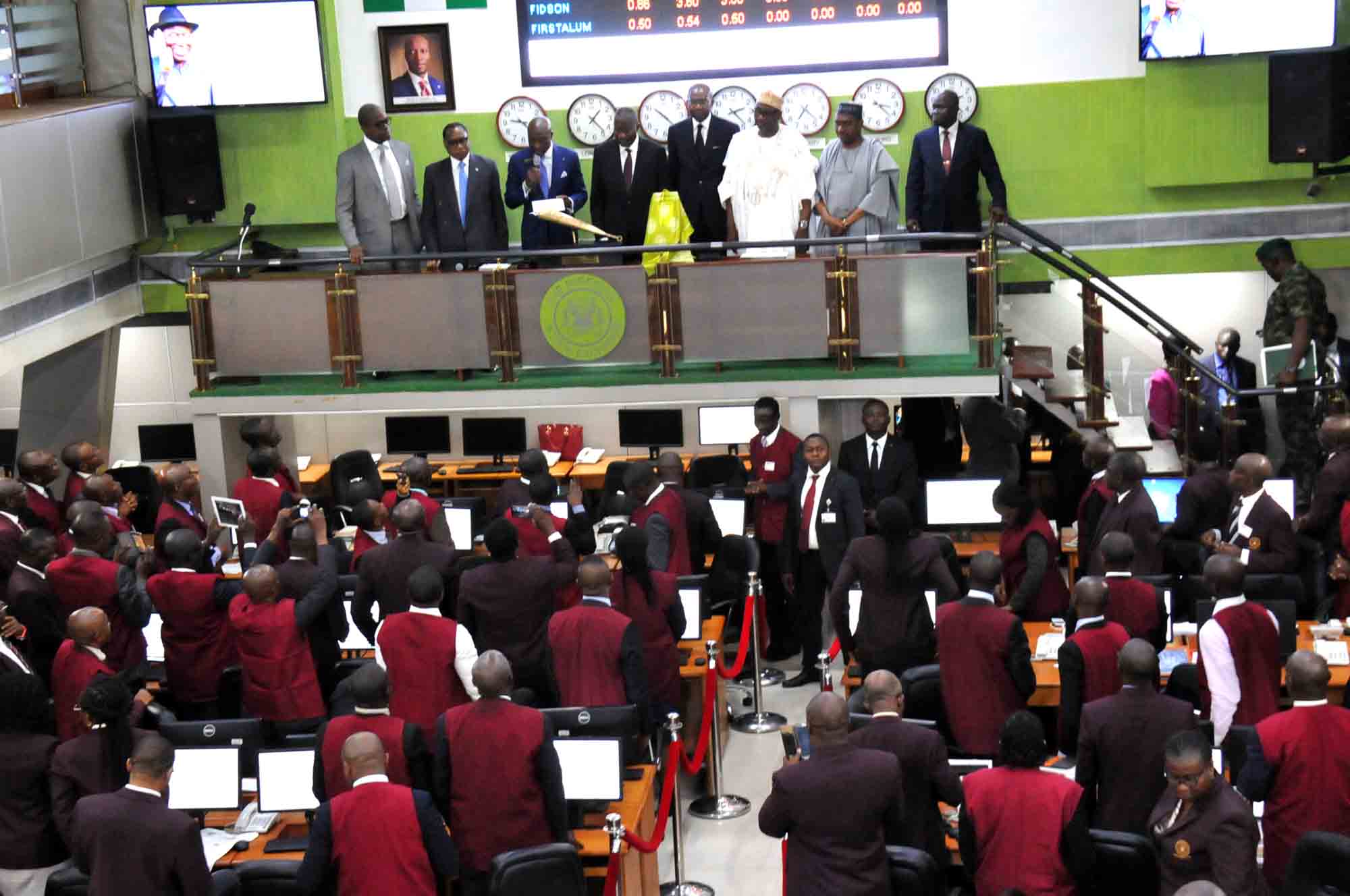- Capital Market: Stock Market Investments Crashed by N1.93trn
The Nigerian capital market has recorded abysmal performance in the last two years of President Muhammadu Buhari’s administration as investors in the nation’s stock market lost N1.93 trillion worth of their investments in companies quoted on the Nigerian Stock Exchange, NSE.
Specifically, data from the NSE showed that the stock market capitalisation, which represents total value of stocks, traded on the Exchange declined by N1.93 trillion or 16.6 percent to N9.718 trillion at the close of trading on Friday, May 19, 2017 from N11.658 trillion it closed on May 28, 2015. Similarly, another stock market gauge, the NSE All-Share Index declined by 6,196.93 points or 18.1 per cent to close on Friday May 19, 2017 at 28,113.44 points from 34,310.37 points it closed on May 28, 2015.
Since Buhari took over on May 29, 2015, the market has been on bearish trend, until after the first quarter this year that the market started witnessing bullish run; though it has not been steady as both the bulls and bears continue to interface.
A breakdown of the market performance, according to Vanguard’s investigation, for the past two years showed that in the first year of President Buhari’s administration, the market lost N1.732 trillion as the NSE market capitalisation on May 27, 2016 closed at N9.926 trillion from N11.658 trillion on May 28,2015. In the same vein, All Share Index dropped by 5,408.12 points or 15.8 per cent to close at 28,902.25 points on May 27, 2016 from 34,310.37 points it closed on May 27, 2016.
In the second year of President Buhari’s administration, the market lost over N208 billion, as the market capitalisation closed on May 19, 2017 at N9.718 trillion fromN9.926 trillion it closed on May 27, 2016. The market for the first one year of this administration was largely dominated by cautious and speculative tendencies despite cheap valuations of equities across the sub sectors on the Exchange on the backdrop of weak investors’ confidence, which was driven mainly by decline in economic activities.
Market initiative and development: Meanwhile, in 2016 the market began to see some initiatives from the apex body of the capital market, Securities and Exchange Commission, SEC, who assured that it will get the federal government to key into the 10 year Capital Market Master plan.
The Master Plan was developed by three committees inaugurated for that purpose in September 2013. The core objective of the Master Plan was to map out strategies for the improvement of the Nigerian capital market in key areas such as investor protection and education, professionalism, and product innovation, and for the expansion of the capital market’s role in Nigeria’s economy.
The SEC, in 2016 introduced the e-dividend portal in collaboration with Nigeria Inter Bank Settlement System, NIBSS, in a bid to solve the problem of rising unclaimed dividend which hit over N80 billion. According to SEC, through the e-dividend mandate, the unclaimed dividend has reduce by N30 billion.
SEC had championed the proposed amendments to laws affecting investment in Nigeria. Further to the resolution passed at the Capital Market Committee, CMC to review extant laws which affect the investment climate in Nigeria, three Committees were constituted by the Commission in June 2016 to review some market legislation. But not much has come out of these laudable efforts till date.
The new issues market has been dead since 2015 as only a few rights issues happened while just two new listings by introduction was recorded. However, the NSE witnessed the listing of Nigeria’s first FX denominated bonds as it partnered the Debt Management office (DMO) to list Nigeria’s $1billion FGN Eurobond which is the first foreign currency denominated security to be listed and traded in the Nigerian capital market. The NSE also listed the recently introduced federal government savings bond on the Exchange.
Looming recovery: Given the recent monetary and foreign exchange (forex) policy changes, such as the Investors & Exporters (I & E) Forex Window introduced by the Central Bank of Nigeria, CBN, Economy Recovery Growth Plan, ERGP, passage of budget, among others, the stock market has started to record some improvement as some level of confidence by foreign investors has started manifesting in the market given the recent rally recorded in recent time.
Analysts and market operators believe that the sustainability of Investors & Exporters window to bring about availability of forex, proper management of policies to stimulate economic growth and favorable developments from these economic indicators will determine the stock market performance in this year and beyond.

 Naira4 weeks ago
Naira4 weeks ago


 Naira4 weeks ago
Naira4 weeks ago


 Naira3 weeks ago
Naira3 weeks ago


 News4 weeks ago
News4 weeks ago
 Travel4 weeks ago
Travel4 weeks ago




 Naira4 weeks ago
Naira4 weeks ago
 Naira3 weeks ago
Naira3 weeks ago


 Jobs3 weeks ago
Jobs3 weeks ago






















